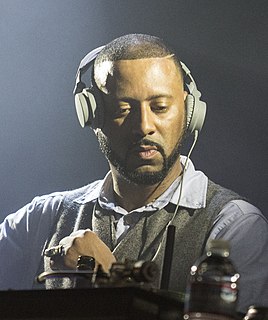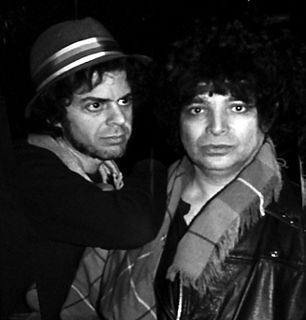A Quote by Madlib
As far as hip hop, I ain't even gonna front, it was 'Rapper's Delight.' That was the first thing I heard where I was like, 'Whoa.' You take that beat and do something over it. I started collecting records after that, old records.
Related Quotes
Even though hip-hop started as a battle format, different artists appeared on each other's records or hung out in the same clubs, supporting each other. That was a profound influence. Also, hip-hop, to me, represents limitless possibility. Hip-hop is always evolving. People say, "Oh, it's a very commercial thing, it's too R&B." But in six months, a record is gonna come out that will completely change that.
In this time, we incorporate money and media, and it's split up like apartheid, where when you say "hip-hop," you think just rap records. People might have forgot about all the other elements in hip-hop. Now we're back out there again, trying to get people back to the fifth element, the knowledge. To know to respect the whole culture, especially to you radio stations that claim to be hip-hop and you're not, because if you was a hip-hop radio station, why do you just play one aspect of hip-hop and rap, which is gangsta rap?
I think that people have been claiming hip-hop as being dead since the moment it started. I think there are people - and I can be included in that category sometimes - that get frustrated feeling like maybe the industry has handcuffed itself, or trained its artists to do or think about music in a way that classically hasn't led to the greatest records in hip-hop.
I loved music. Music was a big thing and so I started collecting records. I had a large collection of jazz records and that was something else I used to listen to. At night, there was a - what the heck was his name? There was a famous - Jazzbo Collins, I used to listen to at night, and some other guys.
I always say to people that I left hip-hop in '97, meaning that I departed from listening to predominately hip-hop and just started really getting into records from the late '60s, early '70s. And once I made that change, I realized how much great music was made back in the day, and it started to become apparent how much we've lost in music.



































